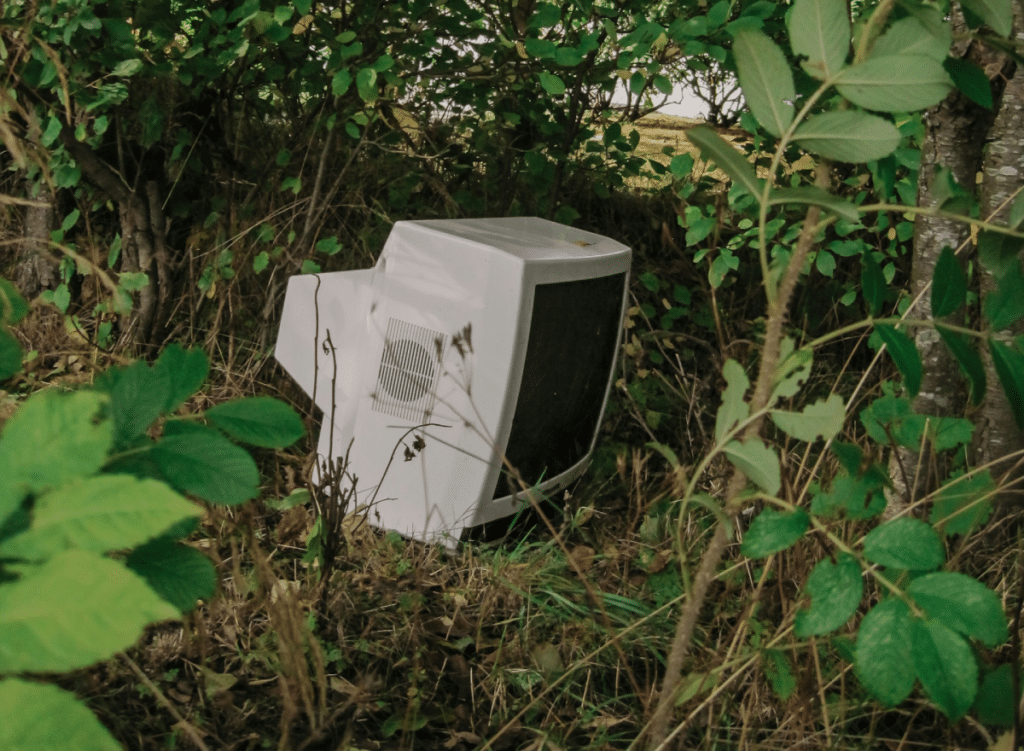Waste Electrical and Electronic Equipment waste, or WEEE, is a waste category that’s surged both in the UK and globally. As tech advances, and becomes cheaper to produce and so more easily disposable, both consumers and businesses are getting through more and more devices, and creating more and more waste.
WEEE waste is more complex to dispose of and recycle than most other dry waste for a number of reasons, but it’s critical that businesses play their part – both for the environment, and for their legal department – to get the process right.
The Challenges
Electronic devices often contain hazardous materials that can present fire risks or health hazards if not handled correctly. These complex products require sophisticated processes to break apart and recycle, which can be costly and resource-intensive. Additionally, the privacy concerns associated with data stored on devices like PCs and mobile phones complicate the recycling process, as secure data destruction must be assured.
The scarcity of some core components used in electronics highlights another critical issue. Precious metals and rare minerals are integral to modern electronics but are limited in supply. Efficient recycling of these materials is not just an environmental necessity but also crucial for sustaining the technology industry itself.
Legal Factors
In the UK, the disposal of electronic waste is regulated under the WEEE Directive, which sets out the requirements for the collection, recycling, and recovery of electronics at their end of life. Businesses are required to ensure that their electronic waste is treated according to specific environmental standards that prevent harm to the environment and human health. This includes mandatory recycling and recovery targets that businesses must meet, underscoring the importance of following the correct procedures to avoid legal repercussions.
Sustainable Disposal Practices for Businesses
To address these challenges and meet legal obligations, businesses can adopt several sustainable practices in disposing of their electronic waste:
- Proper Segregation: Ensure that electronic waste is correctly identified and separated from general waste to avoid contamination and increase the efficiency of recycling processes.
- Use Certified Recyclers: Partner with recycling firms that are certified under standards such as WEEE, which ensure that the recycling process adheres to high environmental standards.
- Data Destruction Services: Engage services that provide secure data destruction to protect sensitive information before recycling devices.
- Encourage Reuse: Where possible, promote the reuse of electronic devices, either through donations to charitable organizations or by selling them to second-hand markets, thus extending their life cycle and reducing waste.
- Employee Awareness and Training: Educate employees about the importance of electronic waste recycling and establish clear guidelines for how to dispose of electronic equipment responsibly.
Manage your WEEE Waste Sustainably with DCW
Businesses across the South West can rely on DCW’s electronic waste collection and recycling services to manage their WEEE responsibly. Committed to a Zero to Landfill policy, DCW ensures that every item of electronic waste they collect is treated with the utmost care to prevent any environmental impact. Our offering aligns with legislative requirements and also supports the sustainability goals of modern businesses.
To discuss your electronic recycling needs and how DCW can help your business achieve its environmental objectives, contact the DCW team today.
